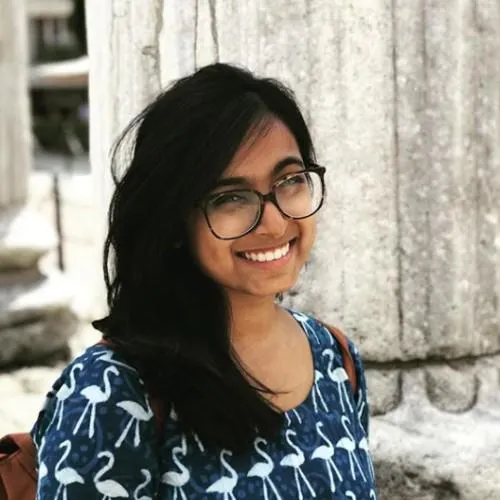Strand Campus
Strand Campus feels like the heart of London—historic yet buzzing with energy. Nestled by the Thames, it offers world-class academics, vibrant student life, and endless inspiration from the city’s culture and diversity.

The multi-faceted Cultural & Creative Industries MA programme provides a critical understanding of the cultural and creative industries (CCIs) - which include, for example, the visual and performing arts, museums and galleries, media, film and gaming. It is designed for graduates from arts, humanities and social science-based courses who wish to explore the cultural and creative industries in greater depth, examining the wide range of CCI sectors and their influence across societies. Drawing from varied disciplinary approaches, from cultural studies to sociology and including public policy, students will learn a range of transferable skills that will equip them for multiple career pathways.

I was inspired by the world of possibilities in the Creative Industries that my course at Kings had opened up for me.

This Cultural & Creative Industries MA is a unique interdisciplinary course that draws on cultural theories, cultural history, digital culture, management, screen studies, museum and heritage studies, cultural policy, gender, and fashion.
You’ll begin this Master’s by studying the key concepts and theoretical frameworks relevant to the cultural and creative industries so that you can start to develop your own critical perspective on this topic. You will come away with a clear understanding of the contexts and debates within the cultural and creative industries and their impact on practice within the sector and build your own toolkit of analytical skills from a range of relevant disciplines.
The second semester’s compulsory module will consider politics, creativity and labour in the cultural and creative industries. This is when you will expand your knowledge and understanding of the real-world workings of the sector, including cultural policies, the conditions of creative labour and the challenges faced by those who work within it.
You can also choose from a broad list of optional modules to further tailor your studies. For example, you could examine the nature of work and labour in the cultural and media industries, explore the specific cultures that intersect with the gaming industries, or get an introduction to the fast-moving field of cultural memory studies. Or you might choose to learn about the business of culture, studying its relationship with the city or markets.
This Cultural and Creative Industries MA will culminate in a dissertation. You will be able to choose whether you work on a traditional dissertation or if you want to collaborate with a cultural partner on your research.
Choosing the Collaborative Dissertation with a Cultural Partner will see you find an external arts, media, or heritage organisation that will collaborate with you on a live research brief. Previous Cultural and Creative Industries MA students have partnered with organisations including Battersea Arts Centre, Black Live Theatre, Arts Council England, Dash Arts, King’s Cultural Institute, Live Cinema, Glyndebourne, Mahogany Opera Group, Lambeth Archives, OnRoad Media, Royal Society, Arts Cabinet, Iconem, and Greater London Authority.
Alternatively, choosing the Creative Research Project will allow you to apply a creative practice to your research.
Course type:
Master's
Delivery mode:
In person
Study mode:
Full time / Part time
Duration:
One year full-time, two years part-time, September to September
Credit value:
UK 180/ECTS 90
Application status:
Open
Start date:
September 2026
Strand Campus feels like the heart of London—historic yet buzzing with energy. Nestled by the Thames, it offers world-class academics, vibrant student life, and endless inspiration from the city’s culture and diversity.